Istražujemo
ELECTRICITY SECTOR: Investment to dirty energy in interest of Chinese and tycoons
Due to decades long extraction of money to private and party budgets, employment of party activists, relatives of party officials and numerous other criminal and corrupt activities, the Electricity Sector in BiH has become dependent on unfavorable borrowing from Chinese banks as well as on investments of businessmen whose capital is of dubious origin

According to the latest available report of the State Electricity Regulatory Commission (SERC), a total of 16,074 GWh of electricity was produced in 2019. Thermal power plants produced 9,613 GWh, hydropower plants 5,650 GWh, wind power plants 254 GWh, small renewable sources (small hydropower plants, wind power plants connected to the distribution system, solar and biofuel power plants) 536.94 GWh and industrial power plants 20.82 GWh.
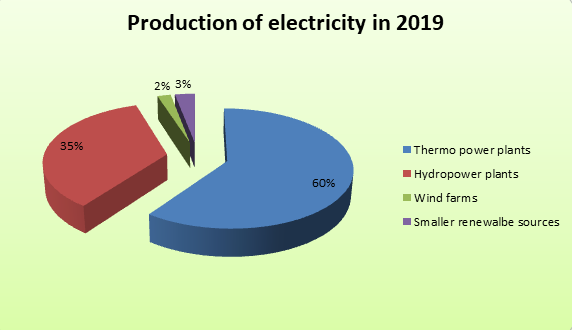
Chinese loans and investments in “dirty energy”
The electricity network in BiH is supplied by five thermal power plants, with a total installed capacity of 2,073 MW. Four thermal power plants are state-owned, namely: TPP Tuzla (723 MW), TPP Kakanj (450 MW), TPP Ugljevik (300 MW) and Gacko (300 MW), and one thermal power plant is owned by a private company - TPP Stanari (300 MW). State-owned thermal power plants, although the largest producers of electricity, have according to available audit and financial reports the largest losses caused by outdated technology. Losses occur due to more frequent maintenance of the plants, on one hand, but also due to lack of due care and diligence in operations, excessive employment and other irregularities. In contrast to the state-owned ones, TPP Stanari, which is owned by the private company EFT of Serbian businessman Vuk Hamović, has been generating profit year after year thanks to the benefits received from the authorities in Republic of Srpska, which was covered by Žurnal.
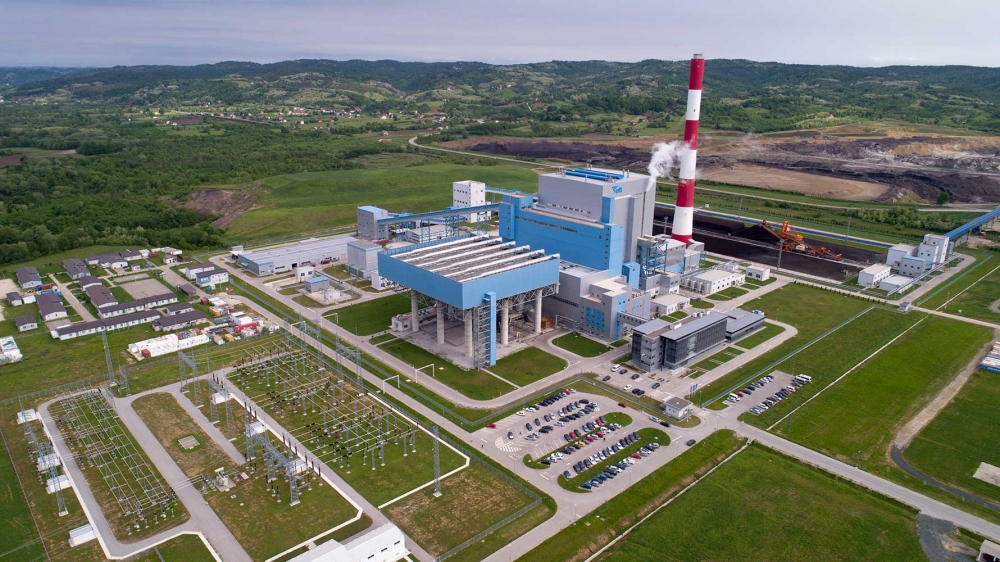
(TPP Stanari)
Existing coal-fired power plants face a number of problems, the most prominent being pollution due to which BiH will be under sanctions of the European Energy Community (EEC) . The plans of the European Union go in the direction of closing all coal-fired thermal power plants by 2050 and a complete transition to environmentally friendly energy sources. However, although generally oriented towards the EU integration, the authorities in Bosnia and Herzegovina do not have the same vision, as evidenced by at least five planned projects related to coal-fired power plants (Kamengrad, Ugljevik III, Gacko II, Banovići, Tuzla VII). Their construction is still uncertain, and the plan is to build them by borrowing from banks from China or investments by foreign businessmen whose capital is of dubious origin.
The construction of TPP Kamengrad near Sanski Most was declared a strategically important project in the energy sector in BiH by the FBiH Government in 2016. The estimated value of this investment is more than a billion KM, and the owner of the project is the company Lager from Posušje, which is close to the authorities. During 2017, Company Lager and the Chinese company Energy China Group held several meetings, organized by the BiH Foreign Investment Promotion Agency (FIPA), to negotiate all the details. At the end of the year, a Memorandum of Cooperation was signed in Budapest on the implementation of the Kamengrad Thermal Power Plant project with a capacity of 430 MW, or two blocks of 215 MW each. Although the mayor of Sanski Most, Faris Hasanbegović, tried to convince the general public that this investment would generate 1.000 new jobs, he failed to convince the local population. The session of the Municipal Council of Sanski Most, at which the letter of intent for the construction of TPP Kamengrad was on the agenda, was canceled in November 2019 under the citizens’ pressure. Therefore, we can conclude that this Chinese investment in dirty energy is made impossible for now.
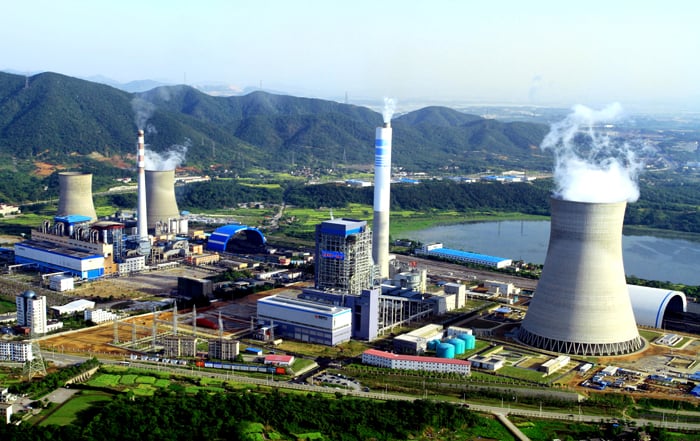
The construction of TPP Ugljevik III was until recently topical as the investment of Russian billionaire Rashid Serdarov, i.e, his company Comsar Energy Group, and the construction of two blocks with a total capacity of 600 MW was planned. According to the reports of Capital.ba portal, after a long delay in the implementation of the project due to non-compliance with the European standards, the company Comsar Energy Group had in July 2018 requested that the concession be extended from 30 to 45 years. According to the explanation, the investment is unprofitable over the 30-year period due to the low price of electricity. Also, 350 MW of power should be installed in TPP Ugljevik 3 instead of the planned 600 MW. At the end of May 2019, information appeared that Elektroprivreda RS plans to buy-out concessions from Comsar Energy Group for 180 million KM, i.e. that Rashid Serdarov will leave BiH with about 150 million KM more than he objectively invested. All accounts of this company in BiH were blocked at the end of 2020, and the fate of the awarded concessions is still uncertain.
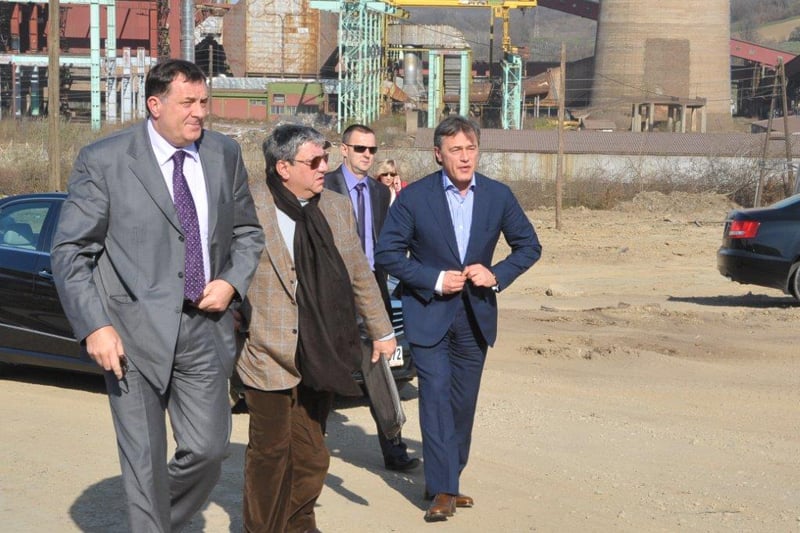
(Milorad Dodik and Rašid Serdarov)
Plans for the construction of TPP Gacko II have been topical since May 2006, when Milorad Dodik, then Prime Minister of the RS, signed an agreement with the Czech Electricity Company (ČEZ) on the establishment of a joint venture Nove Elektrane Republika Srpska (NERS), which was investigated in detail by Žurnal in the documentary Terma.
Three years later, in January 2009, information appeared that ČEZ is leaving the joint venture, and it all ended in 2014 with an arbitration procedure in which it was decided that Elektroprivreda RS should pay 15 million KM in damages to ČEZ.
The story was renewed in 2015, and the Chinese were presented as new partners, given that the construction of TPP Stanari, built by Dongfang Electric Corporation, was in progress at the time. At the beginning of April 2017, the Government of RS signed an Agreement on cooperation in the implementation of the TPP Gacko II project with the Chinese company CMEC, and the construction of a thermal power plant with an installed capacity of 300 MW worth about one billion marks was planned.
Shortly afterwards, the Government of RS signed two contracts with three Chinese companies (CAIDC, CMEC and Poli) for the construction of 350 MW TPP Gacko II, and construction was scheduled to begin in 2018. However, to this day, the fate of this exclusively announced project is unknown.
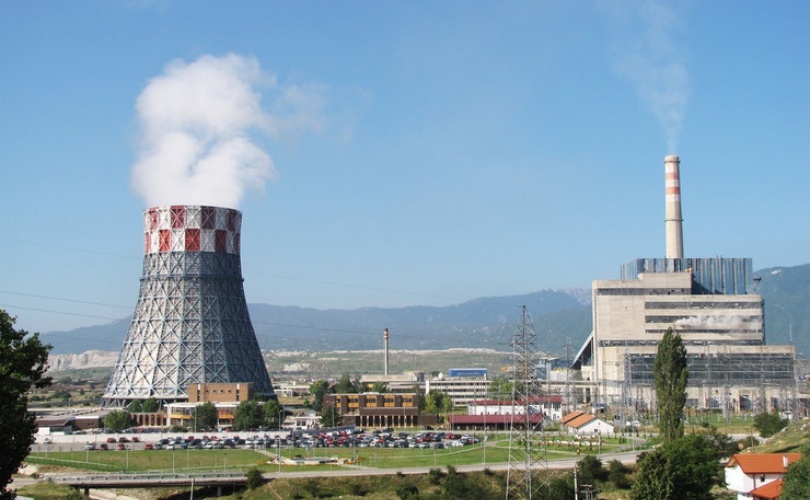
(TPP Gacko)
At the end of 2016, the then director of the Brown Coal Mine (RMU) Banovići, Munever Čergić, had announced that the construction of TTP Banovići would begin in 2017, and that it would be put into operation at the end of 2019. The contract for the construction of one 350 MW block was agreed with the Chinese company Dongfang Electric Corporation.
In 2018 Žurnal announced that 12 million KM was spent on this project, and that it had not received building permits. As with all the previously listed projects, the implementation of this project has still not begun.

The construction of Block 7 of TPP Tuzla is the most certain for now. It is financed by the loan from the Chinese Import and Export Bank (CEXIM) in the amount of 641 million Euro, despite the objections of the European Energy Community (EEC) that implements energy rules of the European Union (EU).
In its last report, published on November 30, 2020, the EEC points out that eight misdemeanor proceedings are being conducted against Bosnia and Herzegovina for violation of obligations and laws in almost all areas covered by the Treaty establishing the EEC.
One of the key problems for the EEC was the fact that the activities on the construction of Block 7 of TPP Tuzla have continued at a time when EU countries are trying to give up energy whose source is coal. The FBiH Government has guaranteed a loan to Elektroprivreda BiH, which is owned by the government, and the financing of Block 7 comes from a loan from the Chinese CEXIM bank. The signing of this guarantee by the FBiH Government led to the termination of negotiations with the EEC Secretariat related to this project.
According to Janez Kopač, director of the EEC Secretariat, in an interview with Radio Free Europe, this could lead to sanctions such as denial of the right to vote in the EEC for Bosnia and Herzegovina, and the denial of the EU assistance funds for all other areas.
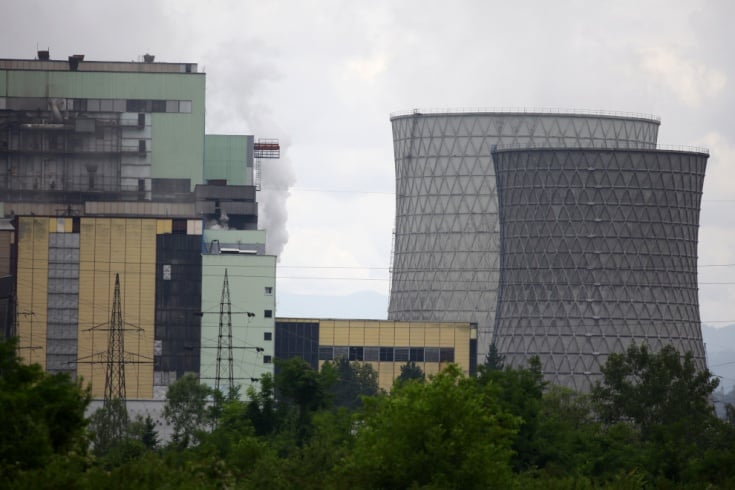
(TPP Tuzla)
Actually, in opinion of many experts in the field of economics and geopolitics, Chinese investments in “dirty energy” (thermal power plants) are one of the models on which they “build their economy”, but also political influence. The Chinese indebt the countries and benefit financially from that, and in addition they have political influence on the decisions of the future EU members.
Potemkin’s hydropower plants
Hydropower plants (HPPs) are the second most important segment of the BiH electricity sector. All existing large hydropower plants are state-owned. Although to a lesser extent than thermal power plants, hydropower plants also record operating losses. The situation concerning the construction of new hydropower facilities is exactly the same as with thermal power plants. The construction of new facilities is being promised before the elections for decades now, the cornerstone laying ceremonies are organized, but that does not result in the production of electricity.
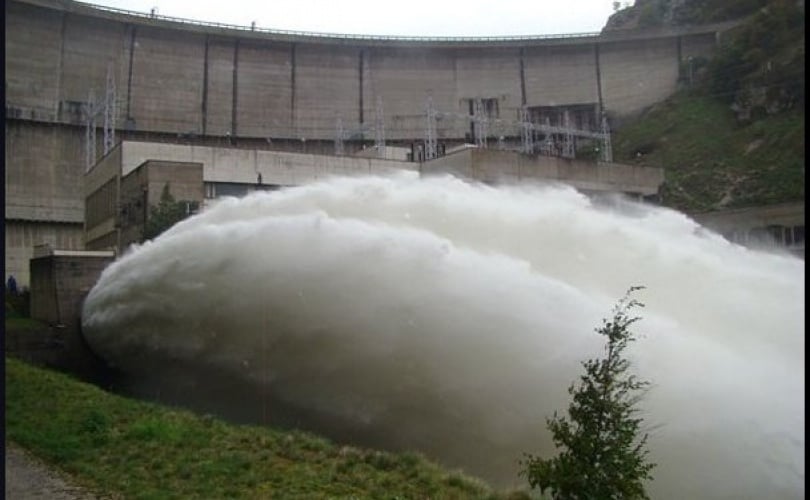
Currently, the most current hydropower projects are HPP Dabar, HPP Bistrica and HPP Buk Bijela, and they have been accompanied by numerous suspicious activities.
After decades of promises and launching of construction, Elektroprivreda RS had in May 2020 signed a contract on the “turnkey” construction of HPP Dabar with the Chinese company China Energy Gezhouba Group. The originally planned value of this project was 352 million KM, and after several years it increased to 488 million KM, and the latest information published by Capital.ba portal is that the value of this investment increased to 661 million KM.
The contract on the construction of HPP Bistrica worth 235 million KM was signed in December 2019 between Elektroprivreda RS and the Chinese company AVIC. After that, apart from information on funding problems, there were no significant activities on this project.
The facility that attracts most attention is certainly HPP Buk Bijela. The project was conceived in 1970s, and since then representatives of all authorities have been promising commencement of the construction. During 2017 and 2018, Elektroprivreda RS conducted negotiations and signed agreements related to this project with two Chinese companies Dongfang Electric Corporation and AVIC, but construction remained in the fog over the Drina River.
In March 2019, representatives of the Government of Serbia and the Government of RS informed the public that they were jointly starting with the project of constructing HPP Buk Bijela, as well as HPP FOČA and HPP PAUNCI, all within the hydropower system (HPS) Gornja Drina. The latest information from October 2020 is that the construction of HPS Gornja Drina with an installed capacity of a total of 180 MW will begin in 2021. The majority owner will be Elektroprivreda Serbia (EPS) - 51%, while Elektroprivreda RS will manage 49%, which has initiated numerous discussions about the jurisdiction, but also about circumvention of the Public Procurement Law.
Apart from unfulfilled promises, the announcement of Chinese loans for the construction and agreements with potential contractors, hydroelectric power plants that have not been built yet are also characterized by the fact that the authorities in Republika Srpska appoint their directors and recruit employees, although firing of units and beginning of electricity production is not even in sight.
Wind power plants and solar power plants as an alternative to “dirty energy”
The potential for the construction of wind power plants in BiH is very large and significant. Students of the Faculty of Electrical Engineering, University of Istočno Sarajevo had in 2011 published a paper according to which there is potential for the construction of wind power plants in BiH at about 30 locations throughout BiH, and the total estimated power of these facilities is about 900 MW, which equals the power of three thermal power plants of 300 MW.
The only two wind power plants (WPPs) in BiH that are connected to the network are WPP Mesihovina and WPP Jelovača. WPP Mesihovina is owned by Elektroprivreda HZHB and the construction was financed by a loan, and WPP Jelovača is an investment of the company F.L. Wind d.o.o, a subsidiary of FEAL d.o.o. whose business is related to Mostar’s Aluminij. It should be reminded that Aluminij was destroyed because it had bought expensive electricity from the company PPD connected with Russian capital, about which Žurnal wrote on several occasions.
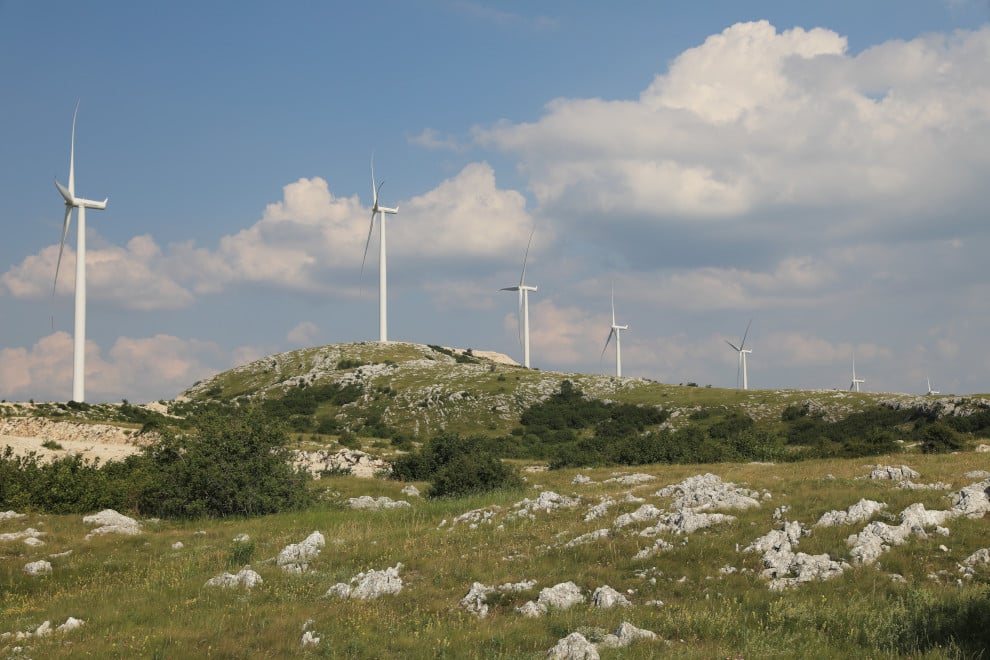
(WPP Mesihovina)
Elektroprivreda BiH built the Podveležje WPP with an installed capacity of 48 MW and is currently in a test phase. Elektroprivreda RS has launched a project to build the Hrgud WPP with a capacity of 48 MW, however, its implementation is still uncertain.
The use of solar energy in BiH is in its early stages and currently no such facility is connected to the electricity grid. So far, the construction of 3 solar power plants in the far South of Bosnia and Herzegovina has been mentioned in the public. The concession for SPP Bileća was awarded to the company EFT International Investments Holdings Limited, owned by Vuk Hamović. The owner of the concession for SPP Trebinje 1 is Elektroprivreda RS, while the concession has not been granted yet for SPP Ljubinje.
The total installed capacity of the planned solar power plants is almost 200 MW, and the potentials for such projects in the far South of BiH are certainly much higher, so the question remains why decision makers do not direct state as well as foreign investments to them.
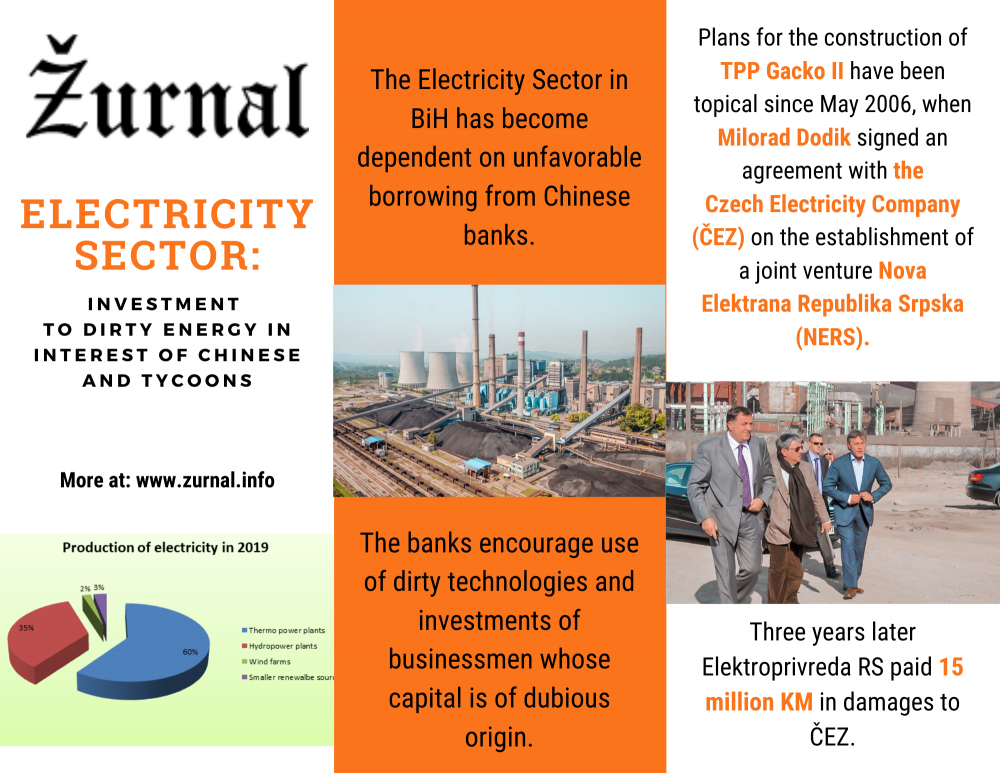
(zurnal.info)




